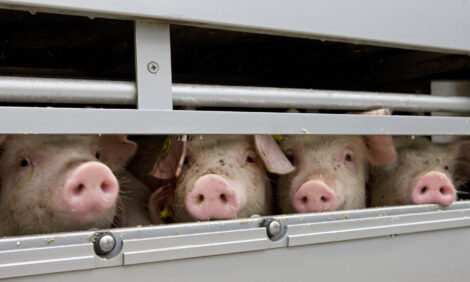



NPPC Details Challenges Faced by Hog Farmers Due to PEDv
US - Hog farmers are dealing with a deadly pig disease, Porcine Epidemic Diarrhoea virus (PEDv), and the threat of trade retaliation against their products, both of which will have a negative impact on the US pork industry, the National Pork Producers Council told congressional lawmakers in testimony before a House Agriculture subcommittee.In a hearing on the state of the US livestock industry held by the Agriculture Subcommittee on Livestock, Rural Development and Credit, NPPC President Dr Howard Hill, a veterinarian and hog farmer from Cambridge, Iowa, detailed the effects on hog farmers of the US country-of-origin labelling (COOL) law and of the PEDv.
COOL, which requires meat to be labeled with the country where an animal was born, raised and slaughtered, caused the Canadian pork industry to reduce production as US hog farmers sought to avoid the costs and complications associated with the law, Hill pointed out. Additionally, the statute prompted Canada and Mexico to bring trade cases to the World Trade Organization, which is expected to rule on them this summer.
Should the WTO decide that the COOL law doesn’t meet US international trade obligations, Canada and Mexico would be allowed to place retaliatory tariffs on US products. NPPC is urging Congress to consider a legislative fix to the labeling law.
PEDv, said Dr Hill, has killed about seven million pigs in 30 states since last April, losses that likely will reduce slaughter this summer by more than 10 per cent. Such reductions would push US hog prices up by 15 to 25 per cent and force consumer pork prices up, according to economist, Steve Meyer, president of Paragon Economics in Adel, Iowa.
Additionally, reduced hog numbers mean less feed, less medicine, fewer veterinary services and shortened hours at packing and processing plants, Hill testified.
NPPC wants the US Department of Agriculture to conduct a thorough investigation on the pathway PEDv and another virus used to gain entry into the US swine herd, to conduct more research on the viral propagation of the diseases and to commit more resources to determining the pathogenesis of and ways to control the viruses.
The US pork industry also urged USDA to “take a thoughtful and measured approach” to developing the PEDv reporting program it announced last week. Hog farmers need a programme that is “practical, workable and that can be successful,” Dr Hill added.








